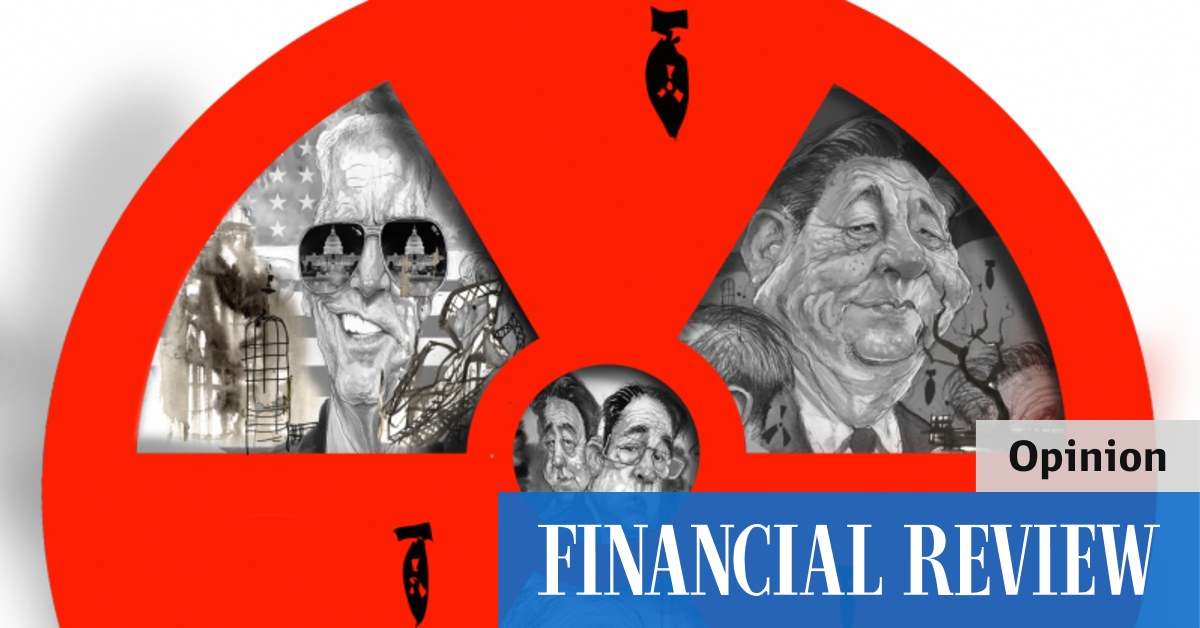The immediate tensions in Taiwan following Pelosi’s visit will probably calm down in the coming days. But the whole episode – from the US administration’s provocative visit to China’s furious reaction – underscores the deep divide between these powerful nations. Throw in the war in Ukraine that will probably leave Russia in the diplomatic deep freeze for decades, and you have a strong reminder that geopolitical tensions will most likely only worsen.
Again, investors sitting in Australia are within their rights to ask: how much does this stuff really matter?
High inflation really matters
The answer may come from Credit Suisse strategist Zoltan Pozsar, who challenges investors to think of geopolitical tensions between the US (and the West more broadly) and China and Russia as part of an economic war destabilizing the low-inflation world we’ve enjoyed for decades.
And higher-for-longer inflation really matters for investors.
Pozsar’s view is that low inflation has simplistically been built on three things: immigration keeping wages low in the US (and arguably other Western countries); cheap goods from China helping to raise living standards despite stagnant wages; and cheap Russian gas powering Europe generally, and Germany specifically.
But the past few years have changed these settings.
Donald Trump’s anti-immigration policies reduced the US labor supply, and wage growth was accelerated by COVID-19-related border closures that further reduced immigration and led many workers to take early retirement.
Amid growing tensions between China and the US, China’s COVID-zero policy has choked the supply of cheap goods to the world.
And Russia’s invasion of Ukraine has prompted the US to weaponize the US dollar to smash Russia’s economy, with Russia weaponizing energy in response.
economic war
It’s widely accepted that this current bout of inflation is supply-driven, caused by the Ukraine war, COVID-19 issues and supply chain disruptions. But it’s also widely accepted that inflation will fade relatively quickly.
Pozsar sees these supply problems as the result of an economic war between increasingly autocratic leaders, particularly in Russia and China.
“Think of the economic war as a fight between the consumer-driven West, where the level of demand has been maximized, and the production-driven East, where the level of supply has been maximized to serve the needs of the West – until East -West relations sourced, and supply snapped back.”
Viewed through this prism, Pozsar says central banks have an extremely difficult task. Rather than trying to get inflation up in a world where globalization was pushing down the cost of labour, commodities and goods, they now have the task of “cleaning up the inflationary impulses coming from a complex economic war”.
He argues political leaders may become more important than central bankers for markets; unpredictable political decisions that affect supply will matter more than monetary policy.
Pozsar emphasizes this is a thought-provoking scenario rather than a forecast, and there are important counterpoints to consider.
For example, China will find it hard to step up any economic war on the US and the West without damaging its own economy. Indeed, the relatively mild sanctions it has announced against Taiwan demonstrate this.
The US can ill afford an economic war, while Russia is already paying the economic price for an actual conflict.
But for investors, Pozsar’s argument is worth chewing on. It’s easy to see inflation coming down sharply in the next 12 months, as markets are clearly doing right now. But as this column has argued before, it’s hard to see inflationary impulses – rising commodity prices amid an energy transition, tighter labor markets as the global population ages, less globalized supply chains in a world of geopolitical tensions – going away.
Or as Pozsar puts it: “Do you see inflation as cyclical (a messy reopening exacerbated by excessive stimulus) or structural (a messy transition to a multipolar world, where two great powers are challenging the hegemony of the US)?
“If it’s the former, inflation has peaked. If it’s the latter, inflation has barely started and could actually be understood as an outright instrument of war.”
